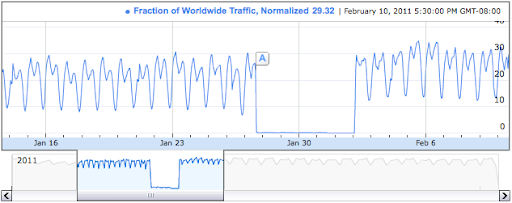We’re excited to announce the 2011 class of Google Policy Fellows, and we’re expecting great things from the 16 students selected for the fourth summer of the Google Policy Fellowship. Our host organizations selected the 2011 fellows from over 900 impressive submissions – nearly double the number of applications from 2010. The 2011 class includes undergrads and graduate students from 15 schools, studying computer science, economics, information policy, intellectual property, international affairs, law, library sciences, and public policy.
Congratulations to the 2011 Google Policy Fellows!
- Adam Weinberg, Johns Hopkins University School of Advanced International Studies - Technology Policy Institute
- Avonne Bell, The George Washington University Law School - Public Knowledge
- Casey Fiesler, Georgia Institute of Technology - Creative Commons
- Colin Rhinesmith, University of Illinois - New America Foundation's Open Technology Initiative
- Corey Carpenter, George Mason University School of Law - TechFreedom
- Corey Walker, Graduate Institute of International and Development Studies - Joint Center for Political and Economic Studies
- Daniel Kent, Haverford College - Internet Education Foundation
- Elizabeth Allen, University of Michigan Law School and University of Michigan School of Information - Future of Music Coalition
- Elizabeth Ruiz, University of North Carolina School of Law - Media Access Project
- Fabiola Rivas, American University Washington College of Law - National Hispanic Media Coalition
- Jennifer Simpson, University of Western Ontario - Canadian Internet Policy and Public Interest Clinic
- Jessie Mannisto, University of Michigan School of Information - American Library Association
- Jon Penney, Oxford University - Citizen Lab
- Josephine Wolff, Massachusetts Institute of Technology - Center for Democracy & Technology
- Luke Pelican, University of Nebraska College of Law - Competitive Enterprise Institute
- Oscar Montezuma, The George Washington University Law School - Electronic Frontier Foundation
Thank you to everyone who applied. Each year brings more and more outstanding applicants, and we hope everyone will stay engaged, involved, and consider applying again for future programs. Please sign up here to receive program announcements, and visit google.com/policyfellowship for more information.
